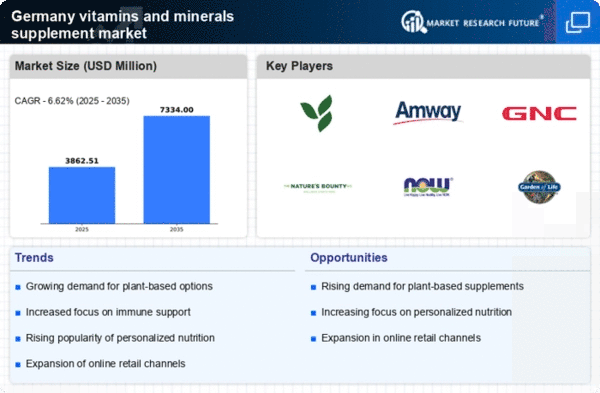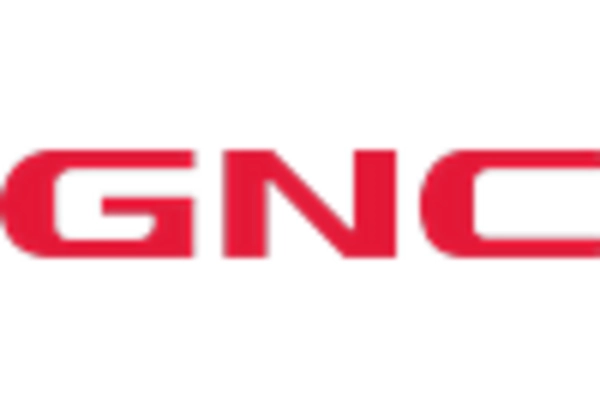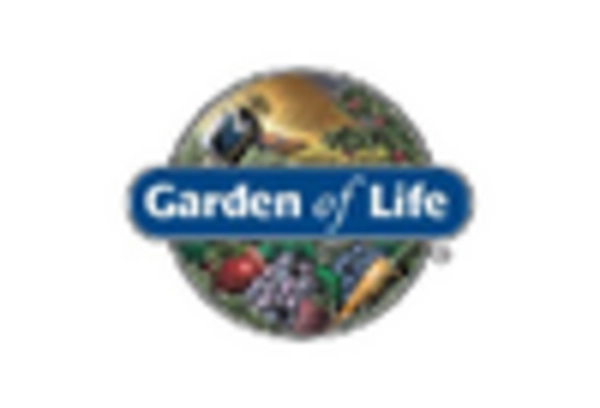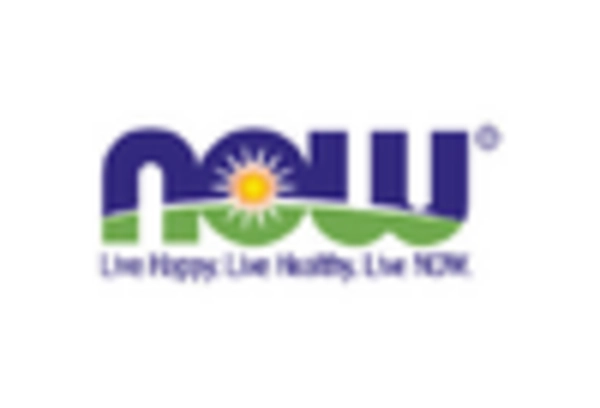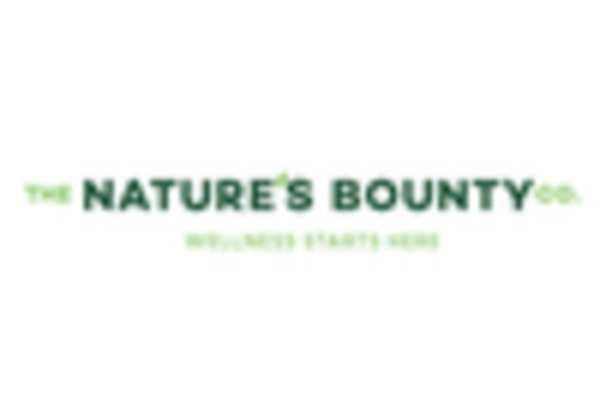Aging Population
Germany's demographic shift towards an aging population is likely to have a profound impact on the vitamins minerals-supplement market. As the proportion of elderly individuals increases, there is a corresponding rise in the demand for supplements that support health in later life. Older adults often require additional nutrients to maintain their health, leading to a projected growth in the market. It is estimated that by 2030, nearly 25% of the German population will be over 65 years old, creating a substantial opportunity for the vitamins minerals-supplement market to cater to this demographic. Products targeting bone health, cognitive function, and immune support are expected to see heightened interest.
Growing Health Consciousness
The increasing awareness of health and wellness among the German population appears to be a significant driver for the vitamins minerals-supplement market. As individuals become more informed about nutrition and its impact on overall health, the demand for dietary supplements has surged. Recent data indicates that approximately 60% of Germans actively seek out vitamins and minerals to enhance their well-being. This trend is likely to continue, as consumers prioritize preventive health measures and seek to address specific nutritional deficiencies. The vitamins minerals-supplement market is thus positioned to benefit from this heightened focus on health, with consumers increasingly turning to supplements as a means of achieving their wellness goals.
Regulatory Support and Quality Standards
The regulatory environment surrounding the vitamins minerals-supplement market in Germany is becoming increasingly supportive, which may foster growth. The German Federal Institute for Risk Assessment (BfR) has established stringent quality standards for dietary supplements, ensuring consumer safety and product efficacy. This regulatory framework appears to enhance consumer confidence in the market, as individuals are more likely to purchase products that meet high safety and quality benchmarks. Furthermore, the emphasis on clean labeling and transparency in ingredient sourcing is likely to resonate with consumers, driving demand for compliant products. As a result, the vitamins minerals-supplement market may experience a boost from this regulatory clarity.
Rising Interest in Preventive Healthcare
The growing inclination towards preventive healthcare is emerging as a key driver for the vitamins minerals-supplement market. Consumers are increasingly recognizing the importance of maintaining health rather than merely treating illnesses. This proactive approach is reflected in the rising sales of supplements designed to bolster immunity, enhance energy levels, and support overall vitality. Market data suggests that the preventive healthcare segment is expected to grow at a CAGR of 8% over the next five years. This trend indicates a shift in consumer mindset, where the vitamins minerals-supplement market is likely to thrive as individuals seek to invest in their long-term health.
Influence of Social Media and Digital Marketing
The role of social media and digital marketing in shaping consumer preferences cannot be understated in the vitamins minerals-supplement market. Platforms such as Instagram and Facebook have become vital channels for brands to engage with consumers, promoting products through influencers and targeted advertising. This trend appears to be particularly effective among younger demographics, who are increasingly turning to online sources for health information. As a result, the vitamins minerals-supplement market is witnessing a shift in purchasing behavior, with online sales projected to account for over 30% of total sales by 2026. This digital engagement is likely to enhance brand visibility and consumer trust.


